A quick glance at Wildlife Conservation -- Goals, Problems, and why we should care.
Today, now than ever before, life must be characterized by a sense of universal responsibility, not only from nation to nation or human to human, but also to other forms of life. – Tezin Gyatso (14th Dalai Lama).
Conservation has been sung for decades now with several government and NGOs trying to save as much wildlife as possible. For what it's worth, Plants and Animals share the planet, as well as the humans do, and it is our duty to ensure a peaceful and non-destructive cohabitation. At least not to the environment. As a microbiologist, I acknowledge the importance and the effects of little things on a large scale and as such, I find the preservation and conservation of living species a serious topic to discuss. Before we go on, let's define wildlife conservation according to Wikipedia.
Wildlife conservation can be defined as the practice of protecting wild plant and animal species and their habitat. - wiki
With the world human population fast approaching 8 Billion people, the topic of wildlife conservation has become an increasingly disturbing one, particularly due to a number of factors that are directly contributing to the dwindling amount of biodiversity in the earth, with humans being at the forefront of it all.
Tech and computing so far has been great, but perhaps it may be the right time for humans to focus on other aspects of life that we have so neglected in the long run. Over the years, there has been a steady decline in the world's biodiversity mostly due to unnatural causes, as we have failed to live benignly with these creatures. Species have been either reduced to very small population size or eradicated to extinction totally due to the pressure we put on them. If you look around, you're sure to see obvious menaces such as bush burning, dumping of non-biodegradable and chemical wastes into the ocean, and oil spills. etc etc. All of these prompts the call to serious consideration of humanity's way of life and it is our responsibility to prevent further damage to wildlife than it is already.

Why you should care.
According to The 2012 update of the IUCN Red List of Threatened Species, out of the 63,837 species examined worldwide, over 19,817 are endangered and threatened with extinction. If that doesn't bother you, it does to me, and it has a very telling impact on the environment, which is something we shouldn't overlook at all.
One reason why you should care is because we're all in this together. Even though we're the most intelligent and dominant species, wildlife (Plants and animals alike) does play very important roles in keeping the earth in one piece, and their demise could have very depressing adverse effects on the environment.
The loss of each species could trigger the loss of another species. If a species should go extinct, there's a high chance that the other species directly above the extinct on would suffer, and this could directly disrupt the food chain, and life in general, might be affected for a long time until some form of natural selection or adaptation happens.
If the carnivores go extinct, for example, you'd see that the forests would be overrun by other harmless herbivores. With time, the population increases and this affects the competition for food and could lead to scarcity and desertification. In the end, they run out of food, even in the rainy season where there should be abundance, and they die off.
With further bush burning, Phyto-planktons in the sea (which are at the bottom of the food chain) are exposed to more UV light and become less productive and slowly degrade, which of course would affect every other life form from the ground up. Without forests and vegetations, the land is exposed to erosion and landscapes are rendered useless. Hence, it is important that we care.

The goals of wildlife conservation.
Like every important thing in life, it would be a total waste of time if we make a fuss about wildlife conservation without knowing why it is important, or what we hope to achieve with it. Some of the goals of wildlife conservation include the following:
- To educate people on the importance of wildlife. To sensitize even local and urban folks on wildlife appreciation and use, as well as the dangers we pose to them.
- For the preservation of biodiversity and habitats, and to ensure that nature at its finest, is kept intact for future generations to enjoy.
- To keep track of the current habitat conditions in a place, as well as further research on target species so as to better understand how wildlife thrives.
- Wildlife conservation reckons the fact that some species (Plants and animals) are equally useful when they're dead (Since they're used for some bio-products). Hence, it serves to regulate the sustained use of profitable species and to make sure their use doesn't lead a species to be tagged as 'endangered' or worse, - extinct.
Basically, the word 'endangered species' defines population of living species that are in the danger of degrading into extinction, mostly because of the population decline to a dangerously low number. This population decline could be triggered by a number of factors such as harsh environmental conditions and human pressure. Let us get to understand the problems of wildlife conservation.

The problems of Wildlife Conservation.
Loss of habitat and human population:
Perhaps the biggest problem facing wildlife conservation is the loss of habitat. In fact, 85% of the 19,817 endangered species on the IUCN's red list were due to the gradual loss of habitat. Even though a part of habitat loss is influenced by natural causes, the human population also play a role in it as well. More often than not, humans mount pressure on green spaces as more lands and forests are cleared to pave roads and build settlements, relegating viable green habitat to the edge of the city.
As these habitats continue to shrink and splinter, plants die off completely from a place, and animals are forced to move away to places where they become even more vulnerable to secondary dangers such as inbreeding, disease or conflict with people. And so it is, that despite the vast expanse of physical space on Earth, wildlife around the world still finds itself shoved into a corner.
Simply stated, it is:

Climate change.
With the continuous roasting of fossil-based materials for fuel and the use of CFC-based aerosols, Global warming and the decline in the ozone affects the amount of radiation and rainfall in the earth. Suddenly, natural habitats become less conducive for wildlife as we see excessively increased rainfalls and draughts leading to flooding and desertification respectively. Also, there are hotter days due to the increased UV, which not only exposes wildlife to harsher living conditions but also affects Planktons adversely, making them less-productive as the years go by. Also, hibernating animals such as reptiles and amphibians could suffer due to natural phenomena like floods and forest fires caused by these changes in the climate. All these are dangerous both for humans and wild animals alike.

Unregulated Hunting and Poaching of wildlife.
Unregulated hunting of animal wildlife and lumbering is still a major concern to wildlife conservation. Till date, game reserves and animal shelters in continents such as Africa and Asia still deal with long battles of poaching and bribery amongst officials. The indiscriminate destruction of animals for their unique body parts have seen a lot of these animals reduce from their thousands to just a couple of hundreds, automatically earning them the 'endangered' status. Poaching is as disgusting as can be, with whole elephants being killed for their tusks, whales for their oil, tigers for their bones, and rhinos for their horns all in the bid to satisfy the current trend of fashion or serve as artifacts for the high and mighty.

Pollution of the environment.
Humans constantly generate trash and most often than not, wildlife would have to find a way to deal with it as they are disposed of in very unsatisfying means. Today, a greater part of chemical wastes and pollutants are released into the environment every day, and they are often ingested by a wide variety of organisms. We've seen cases of mercury poisoning in fishes which when ingested by humans could lead to brain damage, as well as oil spills into the ocean leading to the demise of thousands of sea life. The use of fertilizers and pesticides make certain plants increase yield at the expense of a lot of other good species too. If we're to preach biodiversity, who's to decide what stays alive and what dies?.

Overexploitation of wildlife.
Overexploitation of wildlife is the 'over-utilization' of wildlife for human comfort and satisfaction. Over the years, a lot of what we have come to depend on is based on bio-materials. Animals are killed for food on a large scale, and their skins used for items of clothings and sports materials. Trees are hewn down to be used for building roads and bridges for humans, and plants are cultivated medicinal purposes and as flowers for the beautification of avenues, sometimes, regardless of the population density and scarcity of these species. Even though these are put to very important uses - which I am grateful for, - I do feel that we might be taking more than nature can supply, given the ever-increasing human population.

Solutions, anyone?
Some commonly proposed measures that could curb Endangerment of wildlife, and encourage its conservation are as follows:
Stiffer penalties for trafficking and indiscriminate lumbering
The implementation of stricter measures against animal trafficking and poaching should be enacted. Corrupt officials in places such as game reserves should be brought to books as well. Also, rules concerning lumbering and clearing of habitats for whatever reasons should be well stated to locals as well. This would go a long way to curbing sudden demise and reducing the population.
Better land management policies.
By better use of land and natural resources, we could live benignly with the wild. As such, the government and other professional housing agencies in every country could pass bills and rules regarding the proper use and management of land for building and farming. Boarders and restrictions should be well-defined to abolish encroachment into wind habitats.
Sensitization on eco-consciousness in schools for the younger generation.
The support and encouragement of ecotourism should be preached in Zoos and natural parks. Public participatory programmes could be carried out to sensitize people on the need for wildlife conservation. Even schools could include some of these programmes into their curriculum to enlighten and help keep the younger generation in the know. If these values are instilled into them from a young age, they grow u to become environmentally mindful.
Studies and research.
Further research should be carried out on the production and use of harmless green technology and products, which of course, would go a long way to support the move from fossil fuel reliance to non-destructive and renewable energy sources. I mean, if it is eco-friendly, why not? Also, more professionals should be deployed to help us better understand conservation of some very rare species.
Development and renovation of game parks.
Construction of more wild parks and game reserves by the government and NGOs is also a very effective way of protecting plants and endangered species from further decline. As such, more funds and resources should go into the development of such places. Greenhouses should be built across nations to protect plants that aren't coping so well with global warming, and old zoos should be renovated to better cater for the surviving ones.
More volunteers and support.
None of this would ever be possible if we sit and wait for conservation to effect itself. It wouldn't be done by the media as well. Hence, more programs that are geare towards getting people off their couches to look after the wellbeing of wildlife would be appreciated. We are the government, we are the society, we are the world, every one of us, we should all rise up and lend helping hands, homes, and finances to those who are trying to make things better for creatures of the wild.
Conserve wildlife, conserve the planet

References:
Wikipedia -- Wildlife Conservation.
Everything connects -- Protecting Wildlife.
Steemit -- Ted review on endangered species.
AWF -- Wildlife conservation and preservation.

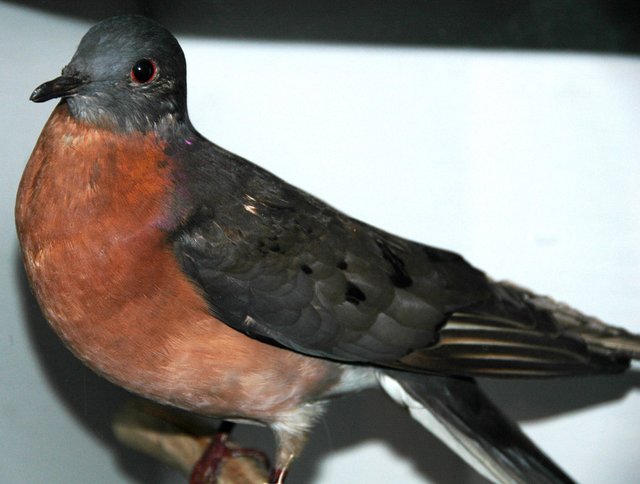
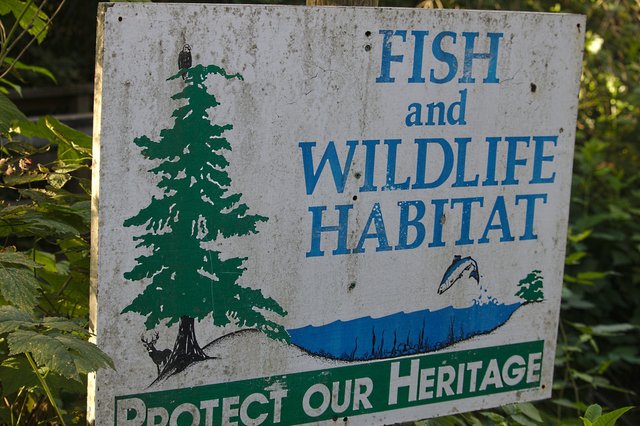
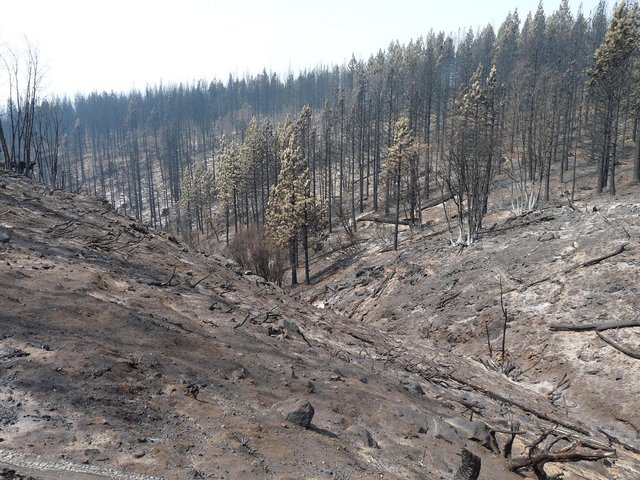
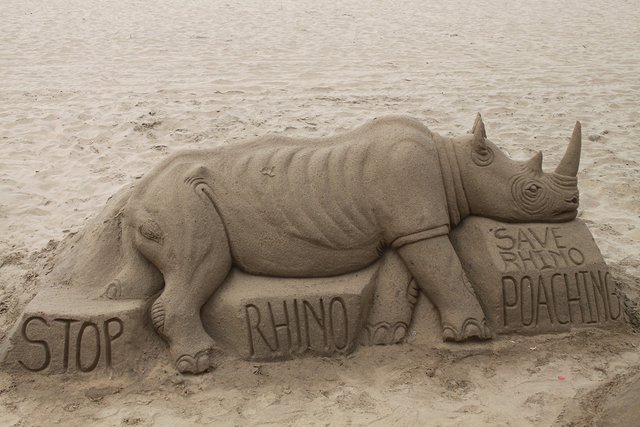
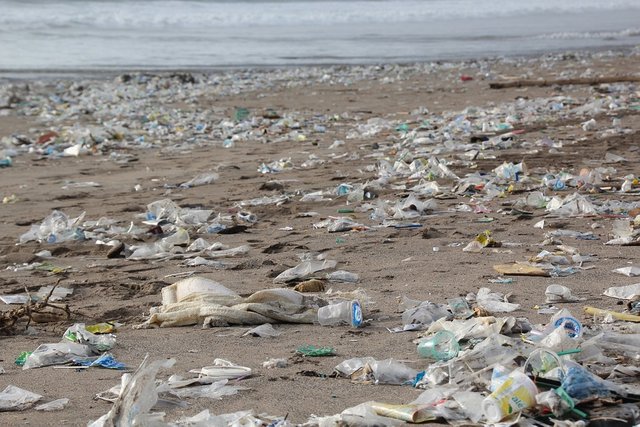

A lot could be said about how humans choose to live. It seems we've been doing it wrong though, and we have affected the environment in a bad way. The passenger Pigeon used to be about a Billion in number and was arguably the most abundant bird species in North America. Extinct? lol, Surely, no one saw that coming, and yet it did, which begs the question: What the heck are we up to!.
Sometimes, I do wonder what humans are capable of doing if we don't protect harmless life from ourselves. This is a really Good one. Glad you finally made the article. I am proud of you.

Thank you. I'm glad myself, but mostly that people are realising how serious this issue is.
thank you for this article. it says everything we all know or should know, and its time to seek the solutions like an advanced civilization should.
Yes @bashan... We really should.
What do you think about animals in Zoo? Most of them were treated harshly and some of them even seemed like lack of nutrients. Is it a good conversation move or is it better to create an open-field wildlife conservation site, like a Safari?
I would say safaris are way better because they are more in their natural habitat, and by keeping them in the open, we are also conserving and protecting the land and environment they live in. (a double win)
But if the zoos could have a structural change where the cages where large enough and new laws put in place for an improved feeding scheme, the animals not to feel suffocated, and i would also consider that a small win.
Oh, what a nice post, I lovetaking care of animals. We are sharing the world with them, it will be very wrong if we abuse them.
That's nice.
We must care and not abuse these animals (great and small). Whether we see the use or not.
Hi @lizbethk!
Your post was upvoted by utopian.io in cooperation with steemstem - supporting knowledge, innovation and technological advancement on the Steem Blockchain.
Contribute to Open Source with utopian.io
Learn how to contribute on our website and join the new open source economy.
Want to chat? Join the Utopian Community on Discord https://discord.gg/h52nFrV
Great post on a great topic. People need to understand what an imporatnt part the environment of plants as well as animals play. Keep up the good work!!
Hmm, I smell someone's doings!
By the way, nice post about animal conservation @lizbethk